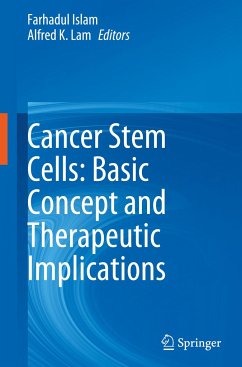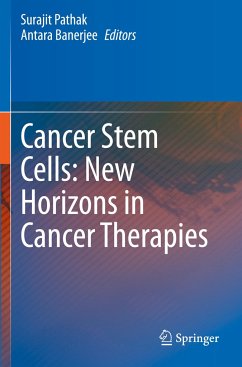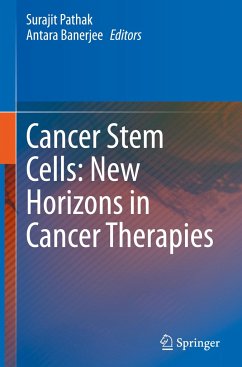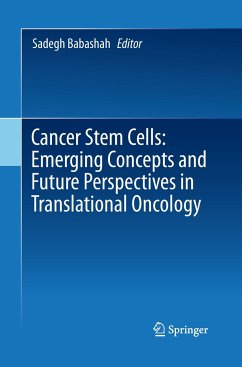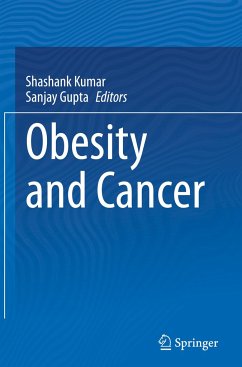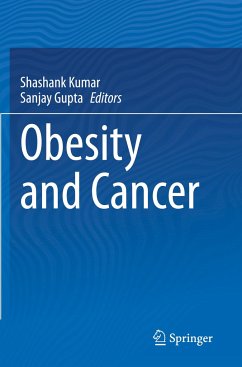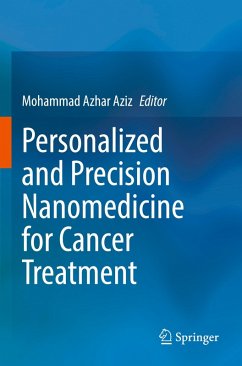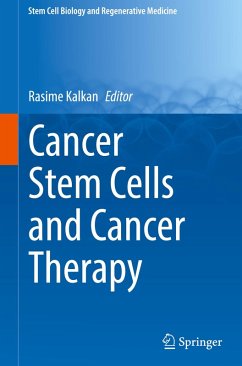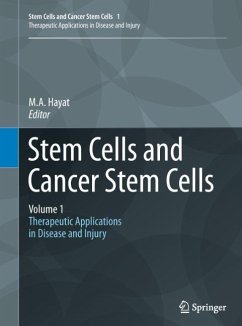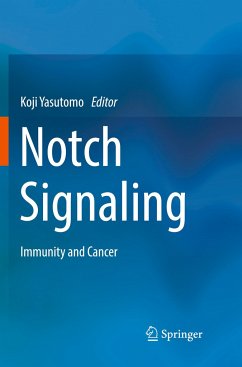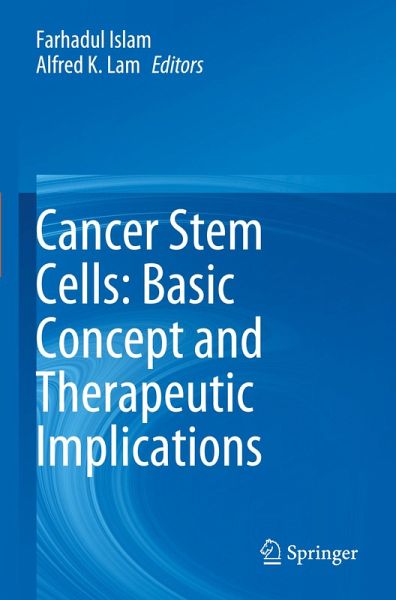
Cancer Stem Cells: Basic Concept and Therapeutic Implications
Versandkostenfrei!
Versandfertig in 6-10 Tagen
151,99 €
inkl. MwSt.

PAYBACK Punkte
76 °P sammeln!
This book comprehensively reviews the role of cancer stem cells (CSCs) in cancer initiation, progression, and resistance to anticancer therapies. The initial chapters examine the methods and procedure of the detection, isolation, and characterization of CSCs. It also introduces various epigenetic pathways that contribute to cancer initiation and tumorigenesis, particularly regarding the maintenance and survival of CSCs. It also explores the role of CSCs metabolism and the mechanisms of metabolic plasticity of CSCs in cancer biology. Further, it also presents the implications of CSCs on the ori...
This book comprehensively reviews the role of cancer stem cells (CSCs) in cancer initiation, progression, and resistance to anticancer therapies. The initial chapters examine the methods and procedure of the detection, isolation, and characterization of CSCs. It also introduces various epigenetic pathways that contribute to cancer initiation and tumorigenesis, particularly regarding the maintenance and survival of CSCs. It also explores the role of CSCs metabolism and the mechanisms of metabolic plasticity of CSCs in cancer biology. Further, it also presents the implications of CSCs on the origin of tumor heterogeneity and on heterogeneity of the therapeutic response. Towards the end, this book highlights the different immunotherapeutic approaches targeting CSCs with the potential of strongly improving cancer outcomes. This book offers a broad framework to scientists and clinicians into the state-of-the-art knowledge on cancer stem cell biology and highlights their therapeutic implications.



